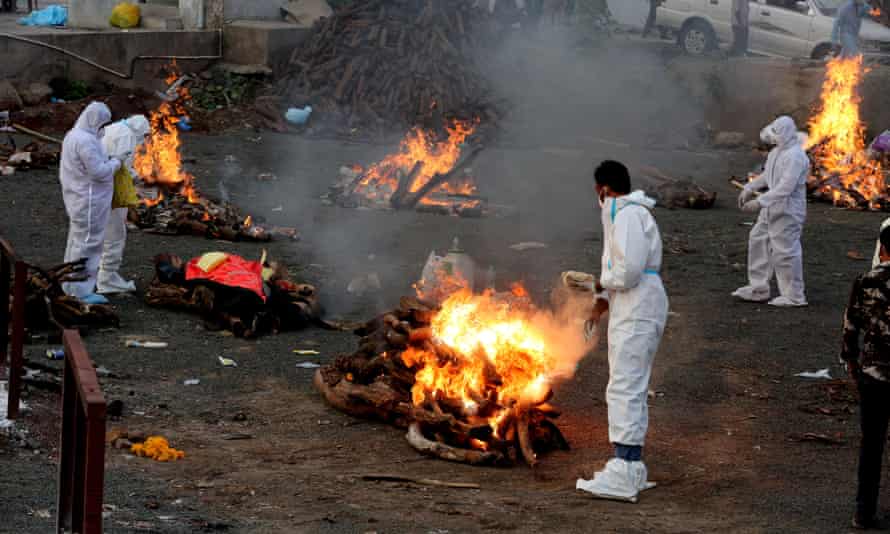Black marketing of healthcare products- A crisis amidst a crisis

India is fighting a very distressing battle with the Corona Virus pandemic and the people of the country are struggling to make out of it, alive. The exponentially increasing numbers have now become names and the citizens have never felt as helpless as we are right now. Even though the pandemic dawned upon us last year, we are witnessing unprecedented wrath recently and honestly, it cannot get worse. While we were in a national lockdown during this period last year, we felt like we were there for each other at the time of need. However, the current state of the country is a discerning depiction of a rather daunting picture. The black marketing of healthcare products- a crisis we never thought would bring us to this point.
It is often said that the black markets are not only responsive to the economic shock but are in many ways deeply influential in how we experience it and the pandemic itself. The intersections between COVID-19 and black markets are enormously complex an in a country like India where corruption starts at the beginning of dawn to the end of the night, the black market has led us to a rather dreadful end, as can be seen from the black market exploitation of various necessities to treat critical cases of the virus in terms of prices, availability and approach. And this is not the only market subject to black-market exploitation- A parallel cyber trade of questionable COVID-19 “cures”, medical supplies, and therapeutics have created a wave of misinformation, scams, and possible public harm on the internet. Penetration of these suspect products ranges from FDA warnings against the use of colloidal silver products, multiple claims of herbal products to treat and cure COVID-19, and even claims that cow dung and cocaine can be used with positive effect against the disease- leading to the creation of businesses in industries with no plausible cause. And let’s not forget about the opportunities for the trade of fake medications, forged plasma contacts and invalid information on leads, creating a separate digital black-market scam.
India’s infamous black marketing has been a not-so-secret saga and while there have been many half-hearted attempts to tackle it, the bureaucracy itself is the protagonist of the story. For the longest time, we’ve been told that we can stop black marketing- by not participating in buying and selling of the proposed activity. But what do we do when the product in question a necessity to save one’s life? What do we do when even the most basic necessity is black marketed? What do we do when the keepers of law are engaged in the process themselves? Well, while these are some rhetoric questions, we’re all aware the answers to these are rather unequivocal.

Three people, including a doctor working in a Delhi hospital, have been arrested in Uttar Pradesh’s Noida for allegedly selling Remdesivir injections at black market rates to needy people amid the COVID-19 crisis, officials said. “They would then sell it to needy people at the rate of ₹ 35,000 per vial and share the profit among themselves. So far, they have sold around a dozen injections,” said the arresting officer. So, the doctors that we trust with our lives are themselves involved in this clandestine business, profiting off of people’s lives. And while a few of them have been caught, anybody who has been a witness to the situation is well aware of the levels at which this process is operating. While the actual price of the generic drug acting as a requisite for the critical cases of the virus is less than Rs 5000, the amounts go as high as Rs 50,000, with most people ending up with lost lives due to the delay in getting approaches nonetheless. While the people of Delhi are dying suffocating due to lack of oxygen, people of the national capital are being arrested for illegally selling oxygen concentrators, some of them not even working, at a price that goes as high as Rs 1.65 lakhs while the actual price is said to be around RS 31,000. Over 600 empty cylinders intended for black marketing were recently discovered by the police, while an uncountable number of them is still on the loose. The country is suffering from an acute shortage of Tocilizumab and other important drugs, the countrymen are busy dealing them in the black marketing with prices shot so much over the roof that a common man can do nothing but watch their loved ones die a helpless death. Private Hospitals have also been caught demanding lakhs of rupees for allocating beds to those in pressing need at a time when there isn’t even enough space in crematory grounds to accommodate all bodies. While these were some heart-wrenching events from recent situations, the problem is much farfetched.
So, while we claim that the healthcare system of the country is in jeopardy, take note of the fact that we are more or less, contributors to the current turmoil. And what do we call this illicit black-marketing activity? Sheer greed? Not just common people, doctors, hospital staff, pharmacists and even officials at some levels are a part of this vicious cycle. The greed to make quick money has led us people to profit off of people’s dead bodies and as depressing as it sounds, the virus isn’t just killing humans, it is humanity that is dying a painful death as well. As we seek effective policy approaches to slow and stop the pandemic, we must be cognizant of their unintended consequences on these illicit trades because from what we can infer right now, it is already too late.






